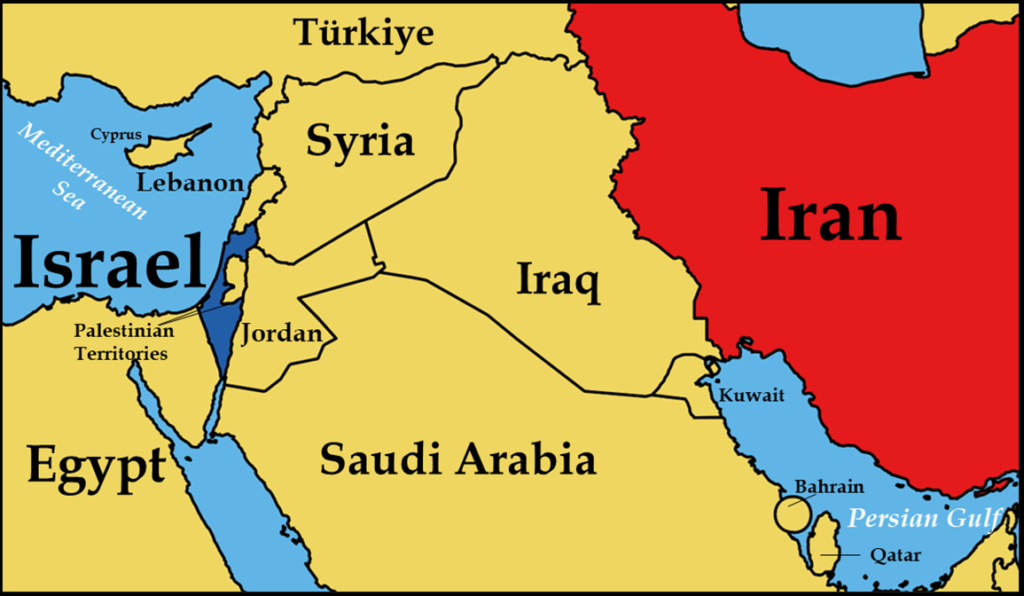The relationship between Israel and Iran is one of the most complex and contentious in modern international relations. These two nations, separated by religion, ideology, and political systems, were once close allies but are now adversaries locked in a rivalry that influences Middle Eastern and global politics.
This article explores the historical context, the ideological divides, the key turning points, and the modern geopolitical dynamics that define the Israel-Iran relationship. By examining the evolution of their interactions, we gain insights into the root causes of their enmity and potential pathways toward coexistence.
Historical Context: From Friendship to Foes
The Period of Friendship (1948–1979)
When Israel declared independence in 1948, Iran was among the first Muslim-majority nations to recognize it, albeit informally. This recognition was driven by mutual strategic interests rather than ideological alignment. Iran, under the rule of Shah Mohammad Reza Pahlavi, saw Israel as a counterbalance to Arab nationalism, particularly under leaders like Egypt’s Gamal Abdel Nasser.
During this period, Israel and Iran cooperated in various domains:
- Economic Ties: Iran supplied Israel with oil, and Israeli engineers assisted in infrastructure development.
- Military Collaboration: Both nations saw Arab states as a mutual threat, fostering security cooperation.
- Cultural Exchange: Despite their differences, limited cultural and academic exchanges took place.
This relationship thrived until 1979, when the Iranian Revolution fundamentally altered Iran’s political and ideological framework.

The Turning Point: Iranian Revolution of 1979
The Iranian Revolution replaced the Shah’s pro-Western monarchy with an Islamic Republic under Ayatollah Ruhollah Khomeini. The new regime adopted a staunchly anti-Israel stance, denouncing Zionism as a colonial and oppressive project. This marked a dramatic shift in Iran’s foreign policy:
- Severance of Ties: Iran ceased all diplomatic and economic relations with Israel, aligning itself with anti-Israel resistance movements.
- Support for Palestinian Causes: Iran began backing groups like Hezbollah in Lebanon and Hamas in Gaza, positioning itself as a leader in the fight against Israel.
The revolution’s ideological framework framed Israel as an illegitimate state and a tool of Western imperialism, setting the stage for decades of hostility.
Key Points of Contention
1. Geopolitical Rivalry
Both Israel and Iran vie for influence in the Middle East. Iran seeks to expand its regional power through proxies and alliances, while Israel works to counterbalance this expansion.
- Iran’s Influence: Through groups like Hezbollah in Lebanon, the Houthis in Yemen, and various Shiite militias in Iraq and Syria, Iran has established a strong regional network.
- Israel’s Countermeasures: Israel conducts targeted airstrikes against Iranian interests in Syria and Lebanon, engages in covert operations, and fosters ties with Sunni Arab states to counterbalance Iran.
2. Nuclear Ambitions
Iran’s nuclear program is a critical point of contention. While Iran insists its program is for peaceful purposes, Israel and its allies view it as a potential pathway to nuclear weapons, threatening regional security.
- Israeli Perspective: Israel has consistently opposed any development that could allow Iran to achieve nuclear weapons capability. This has led to high-profile operations, including cyberattacks (e.g., Stuxnet) and targeted assassinations of Iranian nuclear scientists.
- Iranian Perspective: Iran portrays its nuclear program as a sovereign right and accuses Israel of maintaining an undeclared nuclear arsenal, creating a double standard.
3. Support for Proxy Groups
Iran’s support for groups like Hezbollah and Hamas has fueled its conflict with Israel.
- Hezbollah: Based in Lebanon, Hezbollah is heavily armed and funded by Iran. It poses a direct military threat to Israel and has engaged in several conflicts with it.
- Hamas: Iran’s financial and military backing for Hamas strengthens its capacity to challenge Israel, especially in Gaza.
Modern Geopolitical Dynamics
1. The Abraham Accords
Israel’s recent normalization of relations with several Arab nations, including the UAE, Bahrain, and Morocco, has added a new layer to its rivalry with Iran. These accords have created a Sunni Arab-Israeli bloc aimed at countering Iran’s influence.
- Iran’s Reaction: Tehran condemned the accords, accusing Arab nations of betraying the Palestinian cause and aligning with Israel to isolate Iran.
2. Cyber Warfare
The Israel-Iran conflict has extended into cyberspace. Both nations have engaged in cyberattacks, targeting critical infrastructure and attempting to disrupt each other’s economies and security systems.
- Examples:
- Israel’s alleged role in deploying the Stuxnet virus to sabotage Iran’s nuclear program.
- Iran’s cyberattacks on Israeli water facilities and financial systems.
3. Regional Conflicts
The ongoing wars in Syria and Yemen serve as battlegrounds for Israel-Iran proxy conflicts. Israel targets Iranian military positions in Syria, while Iran supports Assad’s regime and other Shiite factions.
Prospects for the Future
Despite the deep-rooted animosity, some analysts argue that geopolitical pragmatism could eventually lead to détente. However, significant obstacles remain:
- Mutual Distrust: Years of hostility and ideological divides make trust-building a monumental challenge.
- External Influences: The role of global powers like the U.S., Russia, and China complicates the dynamics, often exacerbating tensions rather than resolving them.
- Internal Pressures: Hardliners in both nations resist reconciliation, fearing it could weaken their ideological or political positions.
For peace to be possible, both nations would need to address their core security concerns, curb the influence of extremist factions, and find common ground in shared regional interests.
Conclusion
The Israel-Iran relationship is a testament to the complexities of modern geopolitics. What began as a strategic partnership evolved into one of the most bitter rivalries of the 21st century, fueled by ideological divides, regional power struggles, and external interventions.
While the path to reconciliation is fraught with challenges, understanding the historical context and key points of contention is crucial to imagining a future where coexistence might be possible. In the volatile Middle East, where alliances shift and conflicts simmer, the story of Israel and Iran underscores the delicate balance of power and the enduring quest for stability.
FAQs
1. Why were Israel and Iran allies before 1979?
Before 1979, Israel and Iran shared strategic interests in countering Arab nationalism, fostering economic ties, and maintaining regional stability. Iran, under the Shah, viewed Israel as a potential partner against common threats.
2. What caused the Israel-Iran rivalry?
The rivalry emerged after the Iranian Revolution in 1979, which replaced the Shah’s pro-Western government with an Islamic Republic. The new regime adopted an anti-Israel stance, framing Israel as an illegitimate state and aligning itself with Palestinian causes.
3. What is Israel’s stance on Iran’s nuclear program?
Israel opposes Iran’s nuclear program, fearing it could lead to the development of nuclear weapons. It has taken measures, including cyberattacks and covert operations, to disrupt Iran’s nuclear capabilities.
4. How does Iran challenge Israel through proxy groups?
Iran supports groups like Hezbollah and Hamas with funding, weapons, and training. These groups engage in military actions against Israel, creating a persistent security threat.
5. What are the Abraham Accords, and how do they affect the Israel-Iran dynamic?
The Abraham Accords are agreements between Israel and several Arab nations to normalize relations. These accords create a new alliance that counters Iran’s regional influence, further isolating Tehran.
6. Is there any hope for peace between Israel and Iran?
While possible, peace would require addressing deep-rooted ideological divides, security concerns, and regional rivalries. Pragmatism and external mediation could play a role in reducing tensions.
7. What role do external powers play in the Israel-Iran conflict?
Global powers like the U.S. and Russia influence the conflict by supporting their respective allies. The U.S. backs Israel, while Iran receives support from Russia and China in certain contexts.
The Israel-Iran relationship remains a focal point in Middle Eastern geopolitics. Its resolution, though uncertain, holds the potential to reshape the region’s future.











